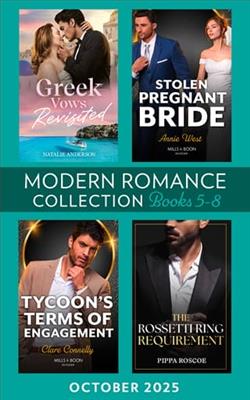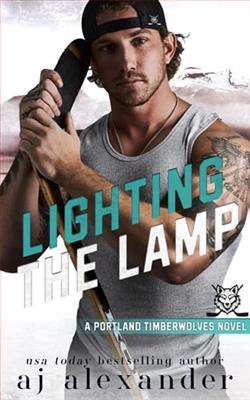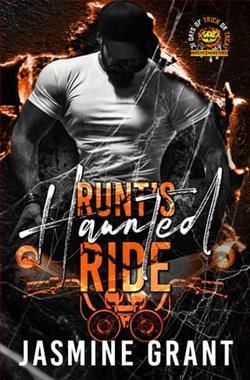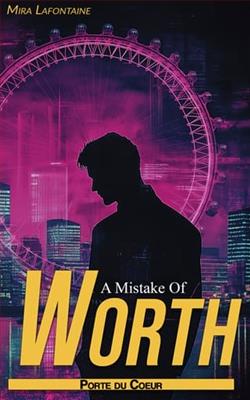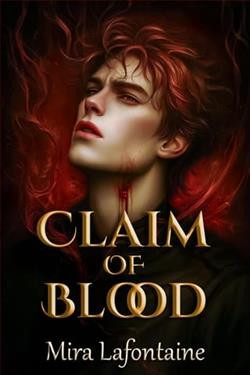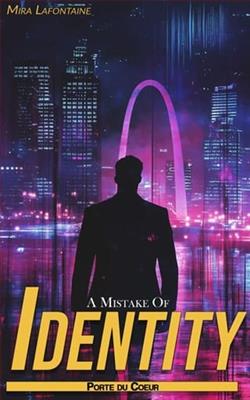Page 184 of Always Meant for You
I wrap my hands around the mug to keep them from shaking. “I’m afraid that the city would pull me in and drag me under the way it did to my mom. That I wouldn’t be strong enough to fight it. So I ignore it. I shun it. I demonize it.” I cringe.
“What’s that face for, Cal?” Betty presses. “You don’t need to be afraid of the truth.”
“Maybe I do. Maybe I’m right to be scared.” My voice cracks. “You said I’m like my mom. Maybe I’ve always known I wouldn’t survive a place that fast or loud. That I’d break the way she did.”
Betty sets her mug down. “You misunderstood me, Cal. Yes, you’re like Sabrina. She had grit and more smarts than she ever got credit for. That girl could calculate bills and add tax faster than any register we had back here. People thought she was all looks, but she had a head for numbers.”
Betty pauses and blinks back tears. “But your mom was young—barely eighteen when she left. She didn’t finish school. Got pregnant soon after. Had no support. And when things got hard, she didn’t know how to ask for help until it was too late.”
I stare down into the dark swirl of coffee. My chest feels empty and full at the same time.
“You’re not her,” Betty says, voice firm now. “You’re not isolated. You had your grandparents, who did do right by you. They saw the mistakes they made with Sabrina and vowed not to repeat them. You had Jamie. Now, you have this town. And you have Mabel.”
“But what if that’s not enough?” I ask. “What if I still fall apart and disappoint them?”
Betty shakes her head. “Nobody’s asking you to be perfect, Cal. I’m just asking you to believe in yourself like you believe in this town. Like you believe in Mabel.”
I look up, my throat burning. “But Mabel’s strong, Betty. She’s always been so strong.”
“So are you, honey,” she says, fire in her eyes. “The difference is, Mabel knows it. It’s time you did, too.”
I still feel like an elephant is standing on my chest. “Let’s just say I decide to go to New York. What if I can’t breathe? Can’t think straight? It happened in Chicago.”
“But you made it through Chicago with Mabel,” she says over the rim of her mug.
I nod.
“And it went well,” she says. “You didn’t fall apart.”
“No, I held it together.”
Her eyes narrow. “Why?”
I see the answer before I speak it. “Mabel.”
“Then let her help you. That’s what love is. And she wants you in every part of her life. You’re in her heart, Cal.”
“How do you know all this, Betty? Is it in my horoscope?”
“So glad you asked.” She bites back a grin, dons a pair of reading glasses, and pulls a square of newspaper from her pocket. “Capricorn,” she reads. “The time for safety has passed. Today demands action. Put your heart on the line, and the universe might meet you halfway.”
“Betty, that could be anything,” I say.
“Oh, there’s more, honey. Ask him,” she says, gesturing toward the diner’s back corner.
Before I have a second to look, a man’s voice cuts through the air.
“I know what I heard my daughter tell you.”
I turn. “Mr. Muldowney?” I manage.
He must have been hunkered down in a booth in the far corner.
He comes toward us. “You love my daughter.”
It’s not a question.
I hold his gaze—the gaze of the stoic and principled farmer I’ve known nearly my entire life. A man I respect deeply. “Yes, sir, I do,” I say, steadier than I feel. “And we were going to tell you about our relationship.”








